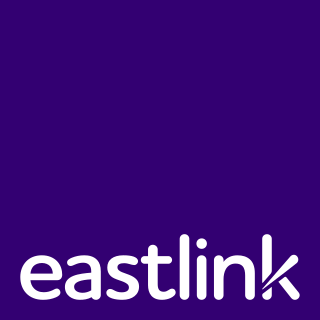
AT&T Mobility, LLC, also known as AT&T Wireless and marketed as simply AT&T, is an American telecommunications company. It is a wholly owned subsidiary of AT&T Inc. and provides wireless services in the United States. AT&T Mobility is the third largest wireless carrier in the United States, with 116 million subscribers as of September 30, 2024.

TracFone Wireless, Inc. (TFWI) is an American wireless prepaid service provider. It is a mobile virtual network operator offering prepaid and no-contract services on the Verizon network under multiple brands, including TracFone, Straight Talk Wireless, Total Wireless, Simple Mobile, SafeLink Wireless, Page Plus Cellular, Net10 Wireless, GoSmart Mobile, and Walmart Family Mobile.

Alltel was a landline, wireless and general telecommunications services provider, primarily based in the United States. Before its wireless division was acquired by Verizon Wireless and AT&T, Alltel provided cellular service to 34 states and had approximately 13 million subscribers. As a regulatory condition of the acquisition by Verizon, a small portion of Alltel was spun off and continued to operate under the same name in six states, mostly in rural areas. Following the merger, Alltel remained the ninth largest wireless telecommunications company in the United States, with approximately 800,000 customers. On January 22, 2013, AT&T announced they were acquiring what remained of Alltel from Atlantic Tele-Network for $780 million in cash.

Bragg Communications Inc., doing business as Eastlink, is a Canadian cable television and telecommunications company. The privately held company was founded in Nova Scotia in 1969 by the Bragg family, and has grown since through the amalgamation of several telecommunications companies.

Sprint Corporation was an American telecommunications company. Before being acquired by T-Mobile US on April 1, 2020, it was the fourth-largest mobile network operator in the United States, serving 54.3 million customers as of June 30, 2019. The company also offered wireless voice, messaging, and broadband services through its various subsidiaries under the Boost Mobile and Open Mobile brands and wholesale access to its wireless networks to mobile virtual network operators.

Tethering or phone-as-modem (PAM) is the sharing of a mobile device's Internet connection with other connected computers. Connection of a mobile device with other devices can be done over wireless LAN (Wi-Fi), over Bluetooth or by physical connection using a cable, for example through USB.

Wi-Fi calling, also called VoWiFi, refers to mobile phone voice calls and data that are made over IP networks using Wi-Fi, instead of the cell towers provided by cellular networks. Using this feature, compatible handsets are able to route regular cellular calls through a wireless LAN (Wi-Fi) network with broadband Internet, while seamlessly changing connections between the two where necessary. This feature makes use of the Generic Access Network (GAN) protocol, also known as Unlicensed Mobile Access (UMA).
1Global (previously Truphone) is a GSMA-accredited global mobile network that operates its service internationally. The company is headquartered in London and has offices in ten other countries, being spread across four continents.

Koodo Mobile is a Canadian mobile flanker brand started by Telus in 2008 and mostly oriented toward younger customers. Koodo differs from its parent Telus by not requiring a fixed term contract. Koodo currently provides postpaid, prepaid, and wireless home phone services. Being a subsidiary of Telus, Koodo has been able to offer extensive coverage and a strong presence in mobile retailers. This allowed Koodo to gain a presence nationwide.

T-Mobile US, Inc. is an American wireless network operator headquartered in Bellevue, Washington. Its largest shareholder is Deutsche Telekom, a company that operates telecommunications networks in several other countries. T-Mobile is the second largest wireless carrier in the United States, with 127.5 million subscribers as of September 30, 2024.
Clearnet was a division of Telus Mobility launched in April 2011 to sell landline and mobile phone bundles in Western Canada. It was a revival of the Clearnet Communications brand name, which originally belonged to an independent cellular provider that was merged into Telus Mobility in 2000. Telus relaunched Clearnet as a discount provider with a "limited market trial" in Kelowna, British Columbia and Red Deer, Alberta.
FreedomPop is a wireless Internet and mobile virtual network operator based in Los Angeles, California. The company provided "free" IP mobile services including free data, text and VoIP and sells mobile phones, tablets and broadband devices for use with their service. In 2024 FreedomPop stopped offering free services, and now offers low-cost packages targeting older and retired people who may have lower requirements for data, texting, and calling. It was founded by CEO Stephen Stokols and Steven Sesar, and owned and operated by STS Media Inc until June 2019 when it was successfully sold. FreedomPop uses networks of T-Mobile and AT&T in the United States, Three in the UK, Yoigo in Spain, and Telcel in Mexico.
MyRepublic Group Limited is a Singaporean communications service provider. Launched in 2011, MyRepublic currently operates in Singapore and licenses its platform to operators in Brunei and Indonesia through its joint venture with Sinar Mas.
Google Fi Wireless, formerly Project Fi and Google Fi, is an American MVNO telecommunications service by Google that provides telephone calls, SMS, and mobile broadband using cellular networks and Wi-Fi. Google Fi uses the T-Mobile network. Google Fi is a service for US residents only, as of late 2023.

Visible Service LLC, doing business as Visible by Verizon, and known simply as Visible, is an American all-digital prepaid mobile virtual network operator (MVNO) and brand wholly-owned by Verizon. Launched in 2018, the carrier offers services on the Verizon network, with all services delivered via e-commerce and mobile apps using generative artificial intelligence, and no brick and mortar retail presence. Visible competes against T-Mobile's Metro by T-Mobile, AT&T's Cricket Wireless, and EchoStar's Boost Mobile in the major carrier prepaid segment.

Ting Mobile is an American mobile virtual network operator owned by Boost Mobile. Originally established in February 2012 by Tucows, Ting provides cellular service in the United States using the T-Mobile and Verizon networks. The service is sold off-contract with billing that adjusts the cost of service based on actual customer usage.

DISH Wireless L.L.C., doing business as Boost Mobile, is an American telecommunications company and wholly owned subsidiary of EchoStar Corporation. Boost Mobile is the fourth largest wireless carrier in the United States. Together with its sister brands Gen Mobile and Ting Mobile, it serves 7 million subscribers as of September 30, 2024.












